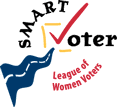| Santa Clara County, CA | November 3, 1998 General |
 |
Standards require supportBy Susan Martimo ChoiCandidate for Governing Board Member; Morgan Hill Unified School District |
This information is provided by the candidate | |
Resources and effective teaching practices are necessary in order to attain standards for student success.Imagine for a moment that you are a child living in the far North and you are expected to meet the standards set for you in your school, but one of the standards is that you are "able to make guacamole from scratch." Now, living in a very small town in the far North, you aren't sure exactly what "guacamole" is. Your teacher also is not entirely sure what it is and doesn't know how to make it, and living where you do, you do not have the necessary resources to make it (no avocados). You fail the standard. Is this fair? No, it is not fair, and yet, this is what we too often expect of our students. It is not enough to just state a standard and magically expect students to meet it. To meet any standard students need both sufficient resources and effective instruction provided by qualified professionals. Stating a standard without having the resources to teach students to achieve that standard is futile. The standards that I, as a librarian, am most concerned about are usually those that relate to literacy, especially information literacy. Information Literacy is defined as the ability to access, evaluate and use information effectively. And even though we hear, again and again, that we live in an Information Age, too often the educational establishment has ignored these vital skills. I believe this stems from ignorance of what information literacy is all about. Information literacy begins by knowing how to ask questions such as, "What information do I need?" Once we have a sense of what information we are looking for, we must determine the best way to access it. And "access" means both intellectual access (knowing how to read and how to structure the search process) and physical access (being able to get to the materials and technology that hold the information). These access skills (what we formerly called library or research skills) are often included in sets of standards for students, but the next steps in information literacy are not as clearly included. Information, especially in these days of Internet hype, must be analyzed to determine its value and relevance to our need. Information literacy would not be complete without using the information appropriately. Some standards do include student research and the kinds of skills we used to call "library skills" (but are now called "information literacy" skills) do appear throughout the grades and in increasing complexity. California's new Reading and Language Arts Standards, for example, begin with very simple information seeking and proceed to sophisticated research skills. Once standards are developed the next question to ask is, "what is needed to enable all students to achieve this standard?" To have students who are information literate we must have resources, including strong school libraries with materials, technology, and adequate facilities. We also must have a sufficient number of credentialed library media teachers to work with classroom teachers to develop the curriculum that integrates these vital skills of information literacy into classroom instruction and student research. One way to proceed is to look at each standard and ask the following questions (these questions are related to information literacy standards, but the process would apply to any standard): • Does this standard require a strong school library? If so, highlight that standard, you have a role to play in helping students meet it. Standards also require effective ways to measure whether students have achieved that standard. We must be able to identify which students have not been successful and determine what is needed to enable them to be successful. As we set our district standards we must remember that it is just one step toward student success. |
Candidate Page
|| Feedback to Candidate
|| This Race
November 1998 Home (Ballot Lookup)
|| About Smart Voter
Created from information supplied by the candidate: October 12, 1998 17:07
Smart Voter '98 <http://www.smartvoter.org/>
Copyright © 1998 League of Women Voters of California Education Fund.
The League of Women Voters neither supports nor opposes candidates for public office or political parties.